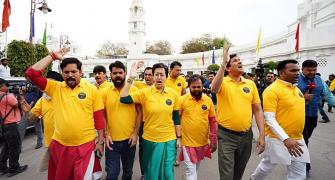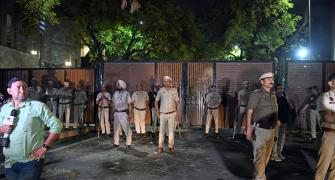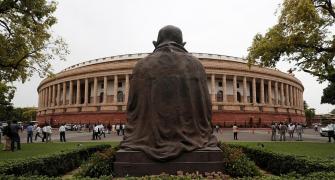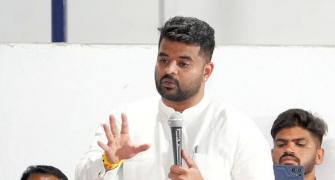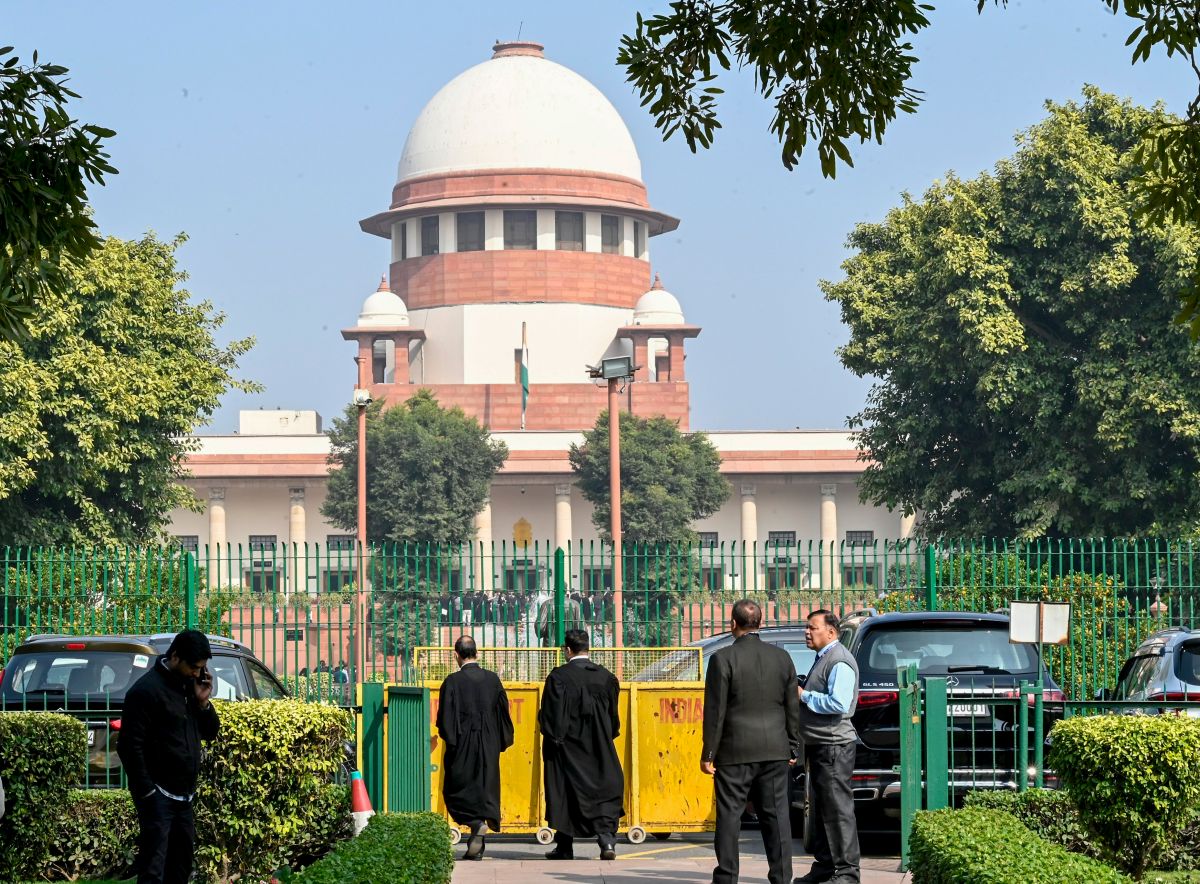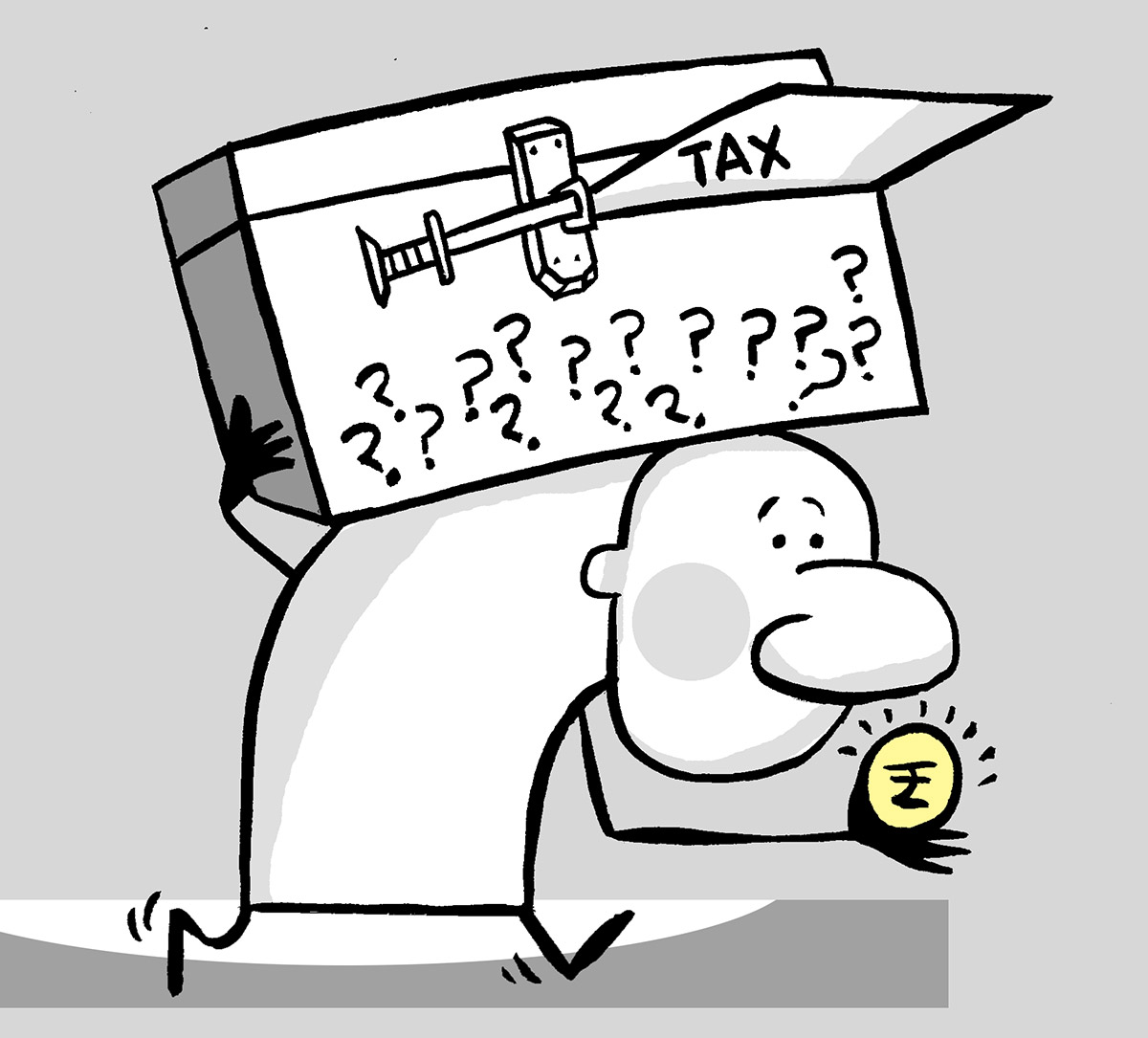The Supreme Court on Monday referred to a five-judge Constitution bench a suit filed by the Kerala government raising the issue of ceiling on net borrowing.
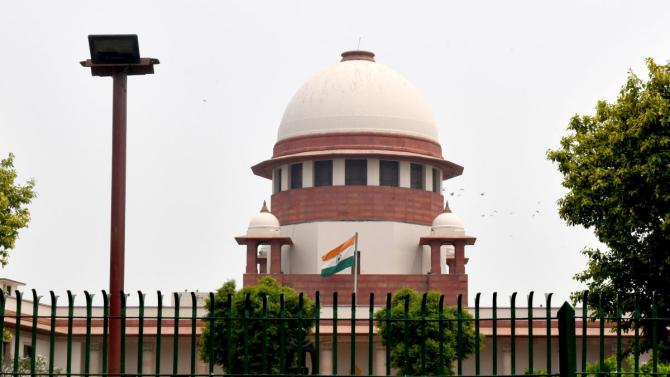
The apex court, however, refused to grant any interim injunction to Kerala saying the state has secured 'substantial relief' during the pendency of the interim application.
A bench of justices Surya Kant and K V Viswanathan passed the order on the suit filed by the Kerala government accusing the Centre of interfering in the exercise of its 'exclusive, autonomous and plenary powers' to regulate the state's finances by imposing a cap on borrowing.
The bench referred to Article 293 of the Constitution, which deals with borrowing by states, and said this provision has not been so far subject to any authoritative interpretation by the apex court.
'Since Article 293 of the Constitution has not been so far the subject to any authoritative interpretation by this court, in our considered opinion, the aforesaid questions squarely fall within the ambit of Article 145(3) of the Constitution. We, therefore, deem it appropriate to refer these questions for pronouncement by a bench comprising five judges,' it said.
The top court said on a critical analysis of the contentions of both sides, it seems that the suit raises more than one substantial question regarding the interpretation of the Constitution, including -- 'Does Article 293 vest a state with an enforceable right to raise borrowing from the Union government and/or other sources? If yes, to what extent such right can be regulated by the Union government?'
It said another question is can the borrowing by state-owned enterprises and liabilities arising out of the public account be included under the purview of Article 293(3) of the Constitution.
Also, the court said, "What is the scope and extent of judicial review exercisable by this court with respect to a fiscal policy, which is purportedly in conflict with the object and spirit of Article 293 of the Constitution?"
It said on merits also, various questions of significant importance impacting the federal structure of governance as embedded in the Constitution arise for consideration.
These include -- "Is fiscal decentralisation an aspect of Indian Federalism? If yes, do the impugned actions taken by the defendant (Union) purportedly to maintain the fiscal health of the country violate such Principles of Federalism?"
The bench said another question pertains to what has been the past practice regarding regulation of the state's borrowing by the Union.
"If such practice has been restrictive of the plaintiff's borrowings, can it estop the plaintiff from bringing the present suit? Conversely, if such practice has not been restrictive, can it serve as the basis for the plaintiff's legitimate expectations against the defendant - Union of India?" it noted.
The bench said another question would be, "Is it mandatory to have prior consultation with States for giving effect to the recommendations of the Finance Commission?".
It directed the apex court registry to place the matter before the Chief Justice of India for the constitution of an appropriate bench to deal with the issue.
On the issue of interim injunction, the bench referred to the triple test -- prima facie case, balance of convenience and irreparable injury.
It said the Kerala government has sought a mandatory injunction and not a prohibitory one.
"Instead of arguing that the Defendant Union of India should refrain from imposing a Net Borrowing Ceiling during the next FY (financial year), the plaintiff (state) has applied for a backward-looking injunction, i.e., for an injunction to undo the imposition of the net borrowing ceiling that covered various liabilities and to restore the position that existed before such ceiling," the bench said.
It said prima facie, the court is 'inclined to accept the argument of the Union that where there is over-utilisation of the borrowing limit in the previous year, to the extent of over-borrowing, deductions are permissible in the succeeding year, even beyond the award period of the 14th Finance Commission. This is, however, a matter which will have to be finally decided in the suit'.
It also noted that according to the Centre, the Kerala government is apparently a 'highly debt stressed state that has mismanaged its finances'.
The bench said the state has strongly refuted this submission by the Centre.
"In any case, we cannot be oblivious of the fact that in light of the plaintiff's (Kerala) contention regarding pending financial dues, the defendant (Union) has already made an offer to allow additional borrowing," it said.
The bench noted that in a meeting held on February 15, the Union had first offered consent for Rs 13,608 crores, out of which Rs 11,731 crore was subject to the pre-requisite of withdrawal of the suit, a condition that was disapproved of by the court.
"Subsequently, in a meeting dated March 8, 2024, the Union offered consent for Rs 5,000 crores. Further, vide circulars dated March 8, 2024, and March 19, 2024, the Union has accorded consent for Rs 8,742 crores and Rs 4,866 crores respectively, which comes to a sum total of Rs 13,608 crores," the bench said.
"Even if we assume that the financial hardship of the plaintiff (state) is partly a result of the defendant's regulations, during the course of hearing this interim application, the concern has been assuaged by the defendant -- Union of India -- to some extent so as to bail out the plaintiff -- state from the current crisis," it said.

